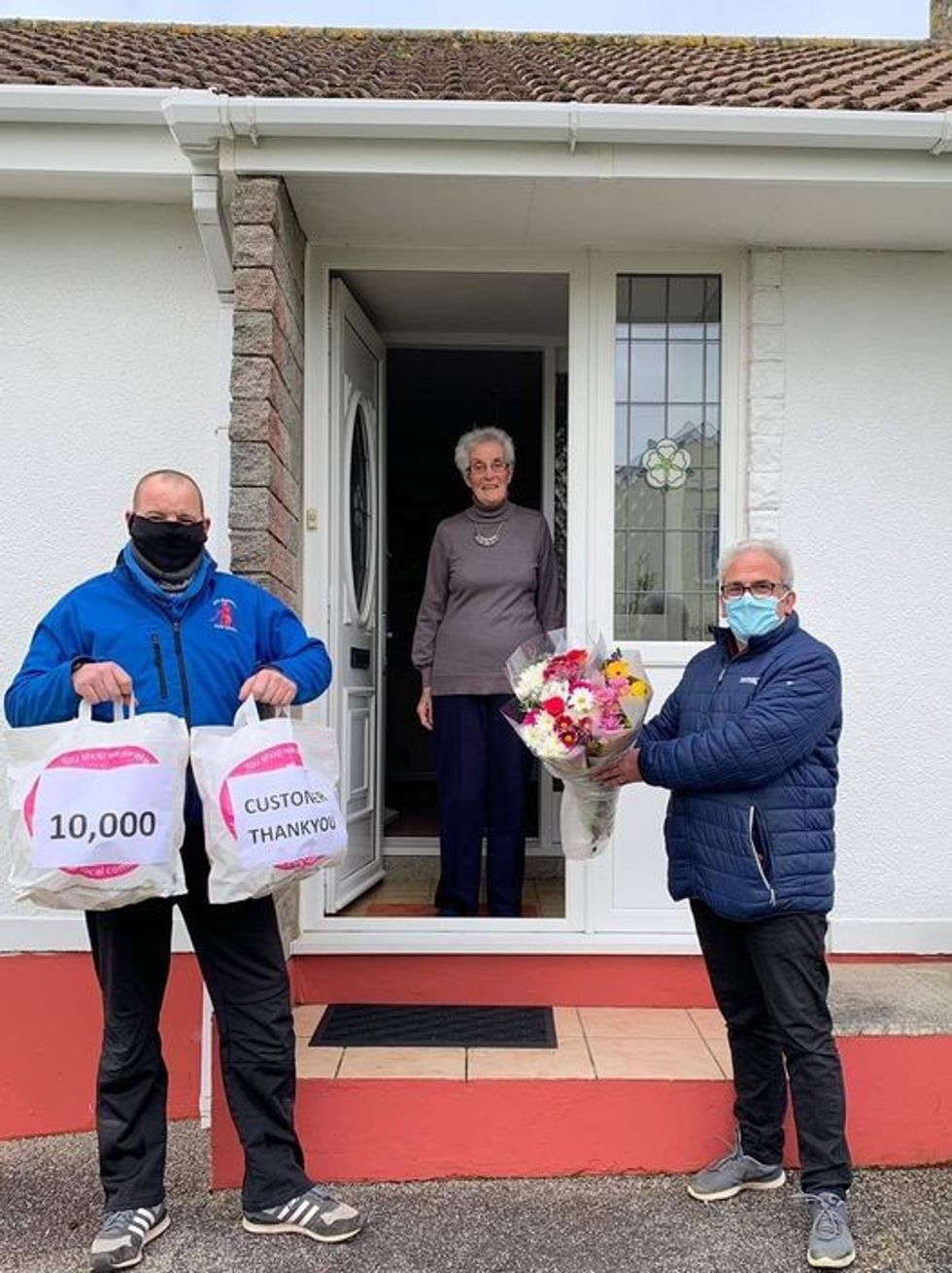Almost two thirds of shoppers (64%) have been choosing to shop closer to home in an effort to support the local community, new research from Barclaycard Payments has shown.
Shoppers spent an extra 63.3 per cent in February at food and drink specialist stores compared with the same month last year, according to the data from Barclaycard Payments.
A new report by the firm reveals that this trend of shopping locally is going to be a lockdown legacy, with nine in ten (91%) Brits who have been shopping locally throughout the pandemic saying they will keep doing this to support smaller and independent businesses even after all restrictions end.
The report, prepared in partnership with Tom Cheesewright, one of Britain’s leading futurists, also identifies several other biggest shifts in consumer behaviour which have emerged as a result of the pandemic and these include online grocery shopping surge and growth in home deliveries and ‘Click & Collect’.
Going Online
Online grocery shopping has seen consistent growth over the past 12 months, with recent Barclaycard data revealing a 115.2 per cent increase in online grocery spend in February alone, compared to the same month last year.
This trend is even more pronounced among the over 65s, whose online supermarket spend more than quadrupled (+332.5%) year-on-year. Almost six in 10 Brits (57%) say they’ll continue to buy at least some of their groceries online even after all restrictions end.
With the closure of non-essential shops for extended periods of time, consumers have been receiving an average of two extra deliveries per month since March 2020 (seven parcels now vs five before March 2020). This equates to over 86 packages in total over the course of a year.

This growth in deliveries is here to stay, with over half of people expecting to receive either the same amount (47%) or more (10%) in the future.
One in three (30%) consumers say they have used ‘Click and Collect’ more frequently since the start of the pandemic. On average, shoppers now use the service three times per month compared to twice a month in 2019. Almost all (90%) of those who have been using ‘Click and Collect’ more often since the start of the pandemic will keep this up once all restrictions have been lifted.
Other trends include the rising rate of returns and substantial growth in mobile payments.
Over half (51%) of Brits have returned items that they have bought online in the last 12 months, compared to 47 per cent in the same period in 2019 and 46 per cent in 2016.
With ‘digital wallets’ and mobile payment services soaring, physical wallets are becoming less popular. Three in ten (30%) consumers and over half of 25-34-year olds (55%) say they now regularly leave their wallet or purse behind because all they need is their mobile phone.
Mindful Spending
Nearly three quarters of people (71%) now think more carefully about how they spend their money and nine in ten (92%) of those who do, planning to continue being more mindful of their spending habits even after lockdown lifts.
With more time available to scour the internet at home for the perfect gift, half of Brits (50%) also say they have put more thought into what they’ve bought for others, with the majority (83%) of those confident this behaviour will continue.
The additional time has also meant people are doing more research to ensure the products they buy are made ethically (46%), with 88 per cent planning to continue this shift in behaviour after lockdown ends.
At-home Experiences
In an attempt to recreate the restaurant experience at home, 10 per cent of Brits tried a DIY meal kit for the first time during lockdown, and 9 per cent have spent more money on them since March 2020.
Around a quarter (24%) of those who have been ordering at-home restaurant kits, will continue doing so even after hospitality venues reopen and one in five (21 per cent) will still order at-home alcoholic drinks tasting experiences.
Since the start of the pandemic, one in 10 (9%) consumers have used ‘come to me’ retail, where a concierge-style service delivers clothing to customers’ homes and waits while they try it on, so that they can immediately return any items they don’t want.
The convenience of ‘come to me’ is proving popular, with 94 per cent of customers planning to use it again.
Investing in Infrastructure
Barclaycard Payments’ research with retailers shows that small and medium sized businesses are responding to this new landscape, with nearly three in ten (29%) planning to invest in new equipment and technology in 2021, and (13%) viewing technology as the top opportunity for growth over the next year.
“The trend towards online and concierge services look set to continue, with shoppers seeking ever greater convenience and clawing back time to spend elsewhere. Retailers that can strip friction from their sales process while making us feel special will continue to succeed,” Cheesewright commented.
“Meanwhile, we continue to seek a greater connection with our local community, going against the all-digital trend. Suburban stores that have survived lockdown look set to thrive when it lifts.”
Kirsty Morris, managing director at Barclaycard Payments, added: “Retailers need to respond to these trends. Now more than ever, Brits expect shopping to be convenient, quick and good value-for-money. For merchants this means investing in e-commerce offerings and payments infrastructures to accommodate more customer-focused shopping experiences.”





